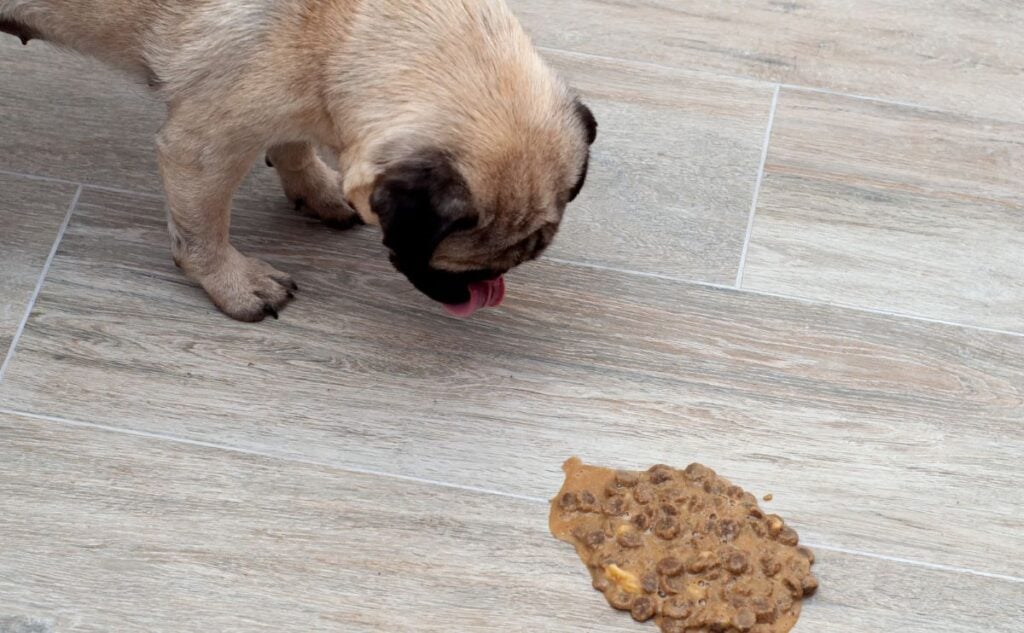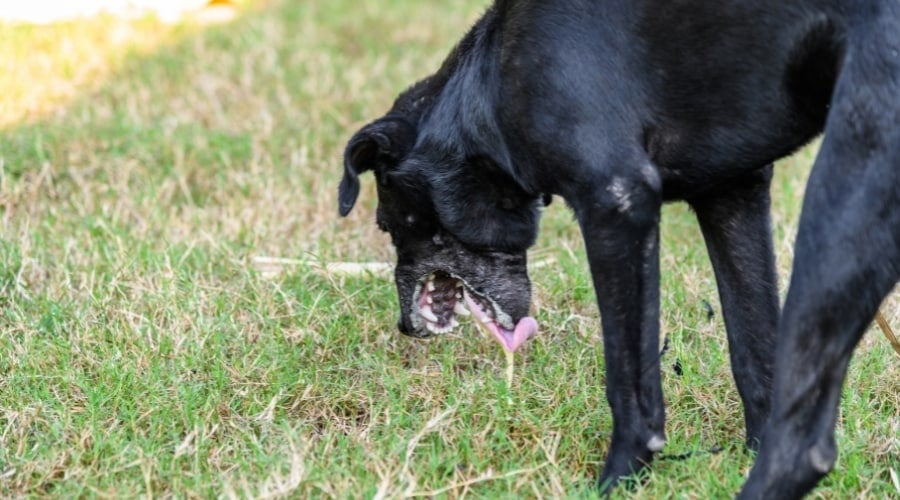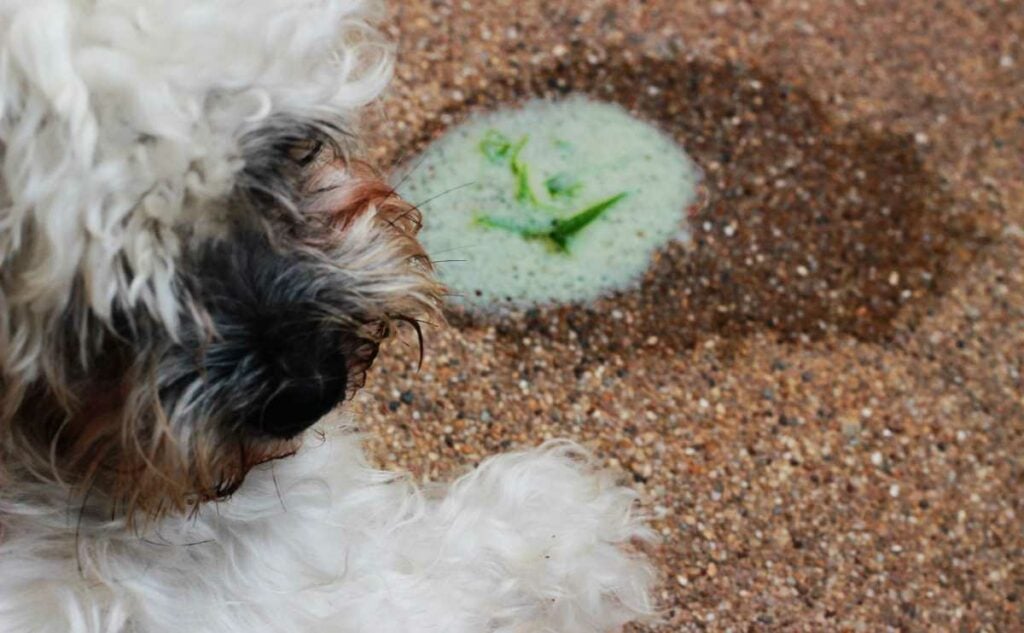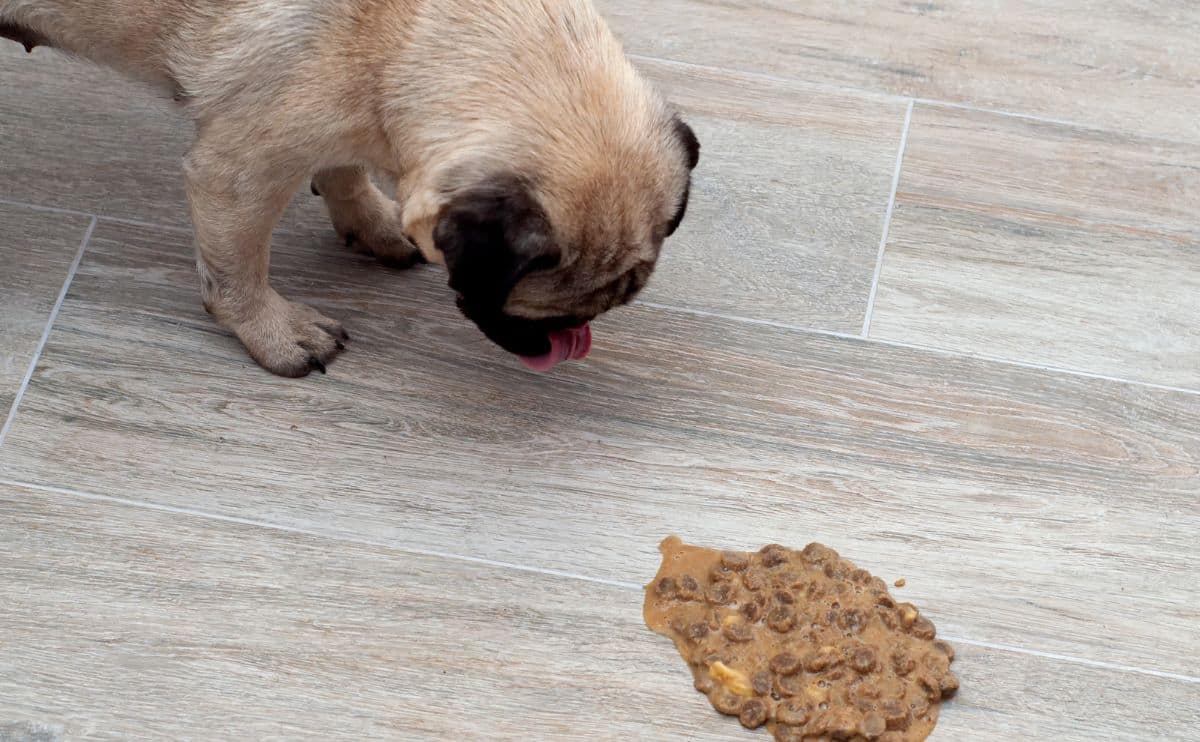For dog owners, few sights are as unsettling as their pet regurgitating – and even more distressing when that same pup decides to make a second meal out of it. The sounds alone – gagging, heaving, then licking – can leave owners queasy without ever seeing the mess.
While my own dog avoids this habit, many canines don’t. This raises questions: Why do dogs eat their vomit? What drives them to snack on a sibling’s throw-up? Most importantly, is it harmful – and how can we stop it?

Vomiting vs Regurgitation In Dogs
Understanding the difference between vomiting and regurgitation is key. These terms describe distinct bodily processes with unique causes. Vomiting involves forceful expulsion from the stomach or upper intestines, marked by retching and heaving. Stomach contents, often mixed with yellow bile, may appear partially digested. This can happen minutes to hours after eating.
Regurgitation, however, is passive. It occurs when undigested food from the esophagus comes back up quickly, without heaving. The expelled material often looks like the original meal, shaped like a tube and coated in clear mucus, typically happening right after eating. Fast eaters may regurgitate – a slow-feeder bowl could help.
Why Do Dogs Eat Their Own Vomit Or Regurgitation?

Dogs often prefer regurgitated food over vomit, but some eat both. This behavior ties to natural instincts or learned habits. Here are key theories:
1. It Smells Tasty
While humans recoil, dogs’ 10,000-100,000x stronger sense of smell detects residual food scents in vomit. Regurgitated food, fresh and undigested, likely smells like a second meal.
2. Puppyhood Habits
Mother dogs often regurgitate food to wean puppies, making it easier to digest. This early exposure may lead adult dogs to repeat the behavior.
3. Stress or Boredom
Anxious or under-stimulated dogs might turn to eating vomit as a coping mechanism. Ensuring enough exercise and interactive toys can reduce this.
4. Resource Guarding
Some dogs guard “resources,” including their own vomit. Breeds like Beagles or German Shepherds may be more prone to this territorial behavior.
5. Scavenger Instincts
Wild ancestors scavenged to avoid wasting calories. Even well-fed pets may retain this instinct, seeing vomit as a nutrient source.
6. Hiding Evidence
Evolutionarily, eating vomit could hide signs of illness, preventing predators from targeting vulnerable dogs – a leftover instinct despite safe homes.
Is It Bad If A Dog Eats Its Own Vomit?

Occasional regurgitated food is usually harmless. But vomit may contain toxins, spoiled food, or foreign objects (like socks) that caused vomiting initially. Re-ingesting these risks blockages or poisoning. Chronic vomit-eating also erodes teeth due to stomach acid, increasing dental disease risk.
Why Do Dogs Eat Throw-Up From Other Dogs?
Some dogs, especially food-driven ones, see another dog’s vomit as an easy snack. One owner notes, “While my dogs don’t eat their own puke, our hungrier pup happily cleans up after the other.” This likely stems from a strong food drive and scavenging instincts.
How Do I Stop My Dog From Eating Vomit?
Curbing this habit requires consistency. Here are strategies:
- Quick Cleanup: Remove vomit immediately to eliminate the temptation.
- Supervised Feedings: Offer smaller, frequent meals to reduce vomiting; monitor eating habits.
- Redirect Focus: Distract with toys or play when your dog approaches vomit.
- Train Commands: Teach “leave it” or “drop it” to discourage the behavior.
- Positive Reinforcement: Reward with praise or treats when they avoid vomit.
Our Personal Experience
When I adopted Tom, a street dog, his food anxiety led him to eat his own vomit. He’d gobble meals too fast, vomit, then re-eat it. To help, I switched to smaller meals, used a slow feeder, and removed him from the area immediately after vomiting. With time, the behavior stopped.
– Danielle DeGroot, Rescue Dog Mom
Frequently Asked Questions
Is Recurring Regurgitation In Dogs Bad?
Regurgitating more than once every 2-3 weeks warrants a vet visit. It may signal issues like acid reflux, megaesophagus, or hormonal disorders.
What Causes Chronic Vomiting In Dogs?
Chronic vomiting (over 7 days) can stem from allergies, parasites, kidney/liver disease, or inflammatory bowel disease. A vet should diagnose the cause.
What Other Harmful Things Do Dogs Eat?
Dogs are notorious for eating grass, dirt, poop, socks, and more. Always monitor for toxic plants or human foods.
When Pet Insurance Makes Sense
For dogs prone to eating dangerous items, pet insurance can cover costly vet bills – like $8,000 for blockage surgery. Research providers to find the best fit.

